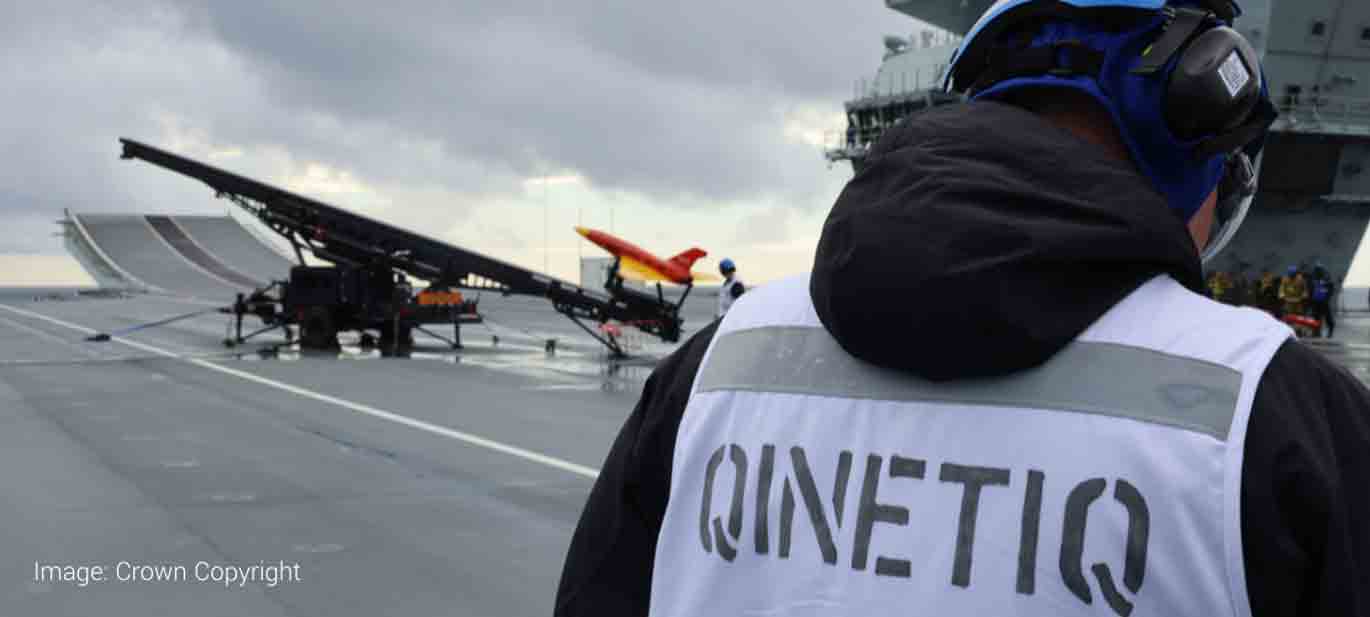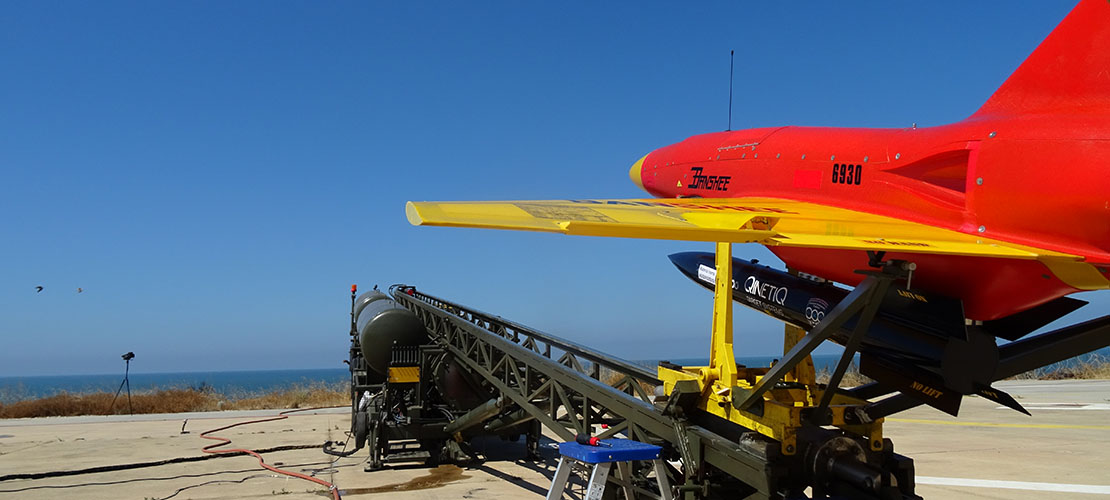QinetiQ to deploy Banshee Air Vehicles on board HMS Prince of Wales as next steps of project Vampire
HMS Prince of Wales to carry Banshee Jet80+ air vehicles on first US east coast deployment.
Anita Hawser
19 July 2022

The Royal Navy’s HMS Prince of Wales aircraft carrier won’t just have the usual crew and aircraft on board when it completes its first deployment off the east coast of the United States later this year.
On board will also be an array of Banshee Jet80+ air vehicles, which will support the Navy’s future use of high-performance Uncrewed Aerial Systems (UAS) in Carrier Strike Group operations.
The Banshees are part of a £1.5m contract recently awarded to QinetiQ to trial the military effect of the Banshee Jet80+ air vehicle on board the Navy’s second Queen Elizabeth-class aircraft carrier.
The Banshee can operate at 25,000ft, or just above the sea surface, and fly at high speeds of up to 400 knots, which means they can be used to emulate cruise missiles and enemy fast jets, for the Royal Navy to train against.This helps the carriers improve its defence capabilities as the size of the Banshee looks like an incoming missile on radar systems.
With the addition of Electronic Warfare systems, QinetiQ said the Banshee will not only stimulate the ship and aircraft radar systems, but also the threat warning systems, adding more depth and reality to the training delivered. This will also demonstrate the potential use of Banshee in a decoy role.
In the ISR role, Banshee will prove its capability to deliver rapid visual identification of radar contacts to allow classification of threats. MAPLE command and control software will be used to integrate ISR and other payloads to deliver essential information to the War Fighter.
“The continued partnership with QinetiQ on Project Vampire is invaluable to support the evidence gathering as to how such capabilities can grow the lethality of our aircraft carriers,” said Colonel Phil Kelly RM, Head of Carrier Strike & Maritime Aviation, Royal Navy.

“These trials will see us using Banshee aircraft in sample ISR scenarios, a role that could be delivered rapidly in the operating environment. It will also show how Vampire can deliver our training needs to better prepare for realistic threats, ensuring that our training continues to remain close to real-life situations.”
Project Vampire forms part of the Royal Navy’s broader aerial UAV ambitions. Given the expense and cost of operating and maintaining the F-35Bs, the Royal Navy is exploring the addition of Uncrewed Aerial Systems (UAS) to supplement existing conventional aircraft. The ambition is to develop a new UAS, with better endurance than conventional aircraft, which can act as a force multiplier. Compared to conventional fifth-generation fighter jets, the UAS will need to be cheaper and disposable, and be able to perform roles such as air-to-air refuelling.
Under Vampire Phase 1, QinetiQ was awarded a £6 million four-year contract to provide experimentation expertise and its Banshee Jet80+ target.
Simon Cooper, Business Development Director UK Defence at QinetiQ said, “Our participation in these important trials and the associated Vampire Phase 1 programme demonstrates the operational relevance of Banshee and QinetiQ’s ability to deliver pertinent operational training and experimentation outcomes for the Royal Navy."